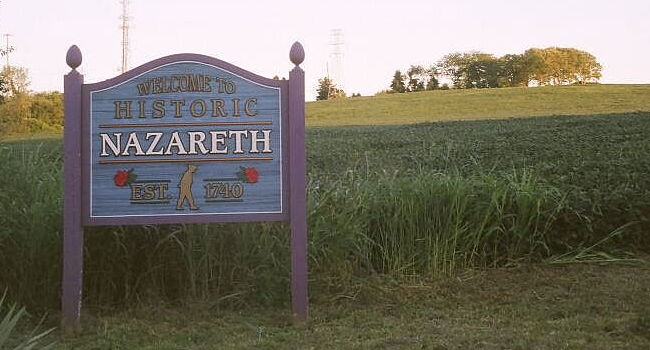The Lehigh Township Board of Supervisors and the Lehigh Township Volunteer Fire Company met on Wednesday, November 8 at the firehouse to discuss the costs associated with fire service for the township, the impact it has on respective budgets and the need for a fire tax.
To begin, Fire Company President Roger Spadt and Fire Commissioner Rick Hildebrand provided a presentation about the fire company and associated needs in order to provide the township with emergency fire services.
Spadt shared that the fire company protects over 11,000 residents in addition to business employees, customers, visitors and highway traffic. They are responsible for providing services to approximately 5,000 homes and businesses spanning 30 square miles, average 500 calls for service annually and provide/receive mutual aid to and from surrounding communities.
Operational costs are roughly $200,000 for the fire station, apparatus and equipment maintenance, compliance testing and insurances for accidental death and dismemberment.
The station derives its income from fundraising, donations, grants and mail fund drives. The mail fund drive on average has less than a 30% return, but this year, the return rate dwindled to 20%.
Although township funding does not support the station’s operational costs, they have assisted with replacing apparatus and currently allocate $279,255 (the income generated from 1 mill) to split between fuel, worker’s compensation insurance, vehicle and equipment insurance and apparatus replacement.
Hildebrand then presented the fire company’s needs, which includes funding to assist with replacing and maintaining apparatus and a scheduled five-year apparatus replacement plan, in addition to township and community support for current and future volunteer firefighters.
Spadt added that the biggest reason for the fire tax is to fund apparatus, so the township doesn’t have to use bonds and loans, which come with interest, and the proposed five-year apparatus replacement plan allows the fire company to replace equipment before it becomes costly to maintain because “the longer you hold onto something, the less you’ll get for it.”
Therefore, a fire tax would provide designated taxation to fund fire company expenses, covering all of the aforementioned costs, as well as a possible future station replacement. Moreover, the only way the Board of Supervisors can provide funding is through a fire tax of up to three mills.
“People pass by the fire house on a daily basis and just assume it will always be there. Truth is, without your help and support, it cannot exist,” shared Hildebrand.
It was also noted that the township has not raised taxes in nine years and has one of the lowest tax rates amongst 38 communities in the area.
During public comment, many residents thanked the fire department for their sacrifice and service to the township and community, and although several individuals expressed their support for the fire tax, the majority of individuals that voiced their concerns opposed it.
Many residents expressed that a fire tax would add undue financial strain on township residents that are already struggling, especially for those living on fixed incomes, considering seniors account for approximately 22% of the Lehigh Township population.
One resident stated: “Your donations are down to 20% because people can’t afford to donate; they can barely afford necessities.”
Numerous residents suggested alternatives, but the board and fire company determined many of the suggestions to be inadequate or unlawful. Some of these suggestions included a county tax, requesting county funds, increasing township taxes, door-to-door fundraising, increased fundraising, mandatory subscriptions at a set rate, and exemptions for those with fixed incomes.
Residents also pointed out that they believe subscriptions are down because of the $315,000 in embezzled funds that a previous volunteer firefighter stole from the organization between 2011 and 2018, which makes them hesitant to donate.
However, Spadt clarified that the funds were stolen from the Fireman’s Relief Organization, not the fire company, and that insurance helped return every penny.
During questions, Vice Chairman Cynthia Miller established that one mill is about $55.82 per household based on a $55,000 assessment value or $100 per year for a house assessed at $100,000, which is not to be confused with current market price. Furthermore, the one mill that is allocated to the fire company annually would then be used for other township necessities once the fire tax is implemented.
The board did not propose any specific millage they were considering for the fire tax during the meeting.
Nearing the end of the meeting, most residents were still not assuaged by the discussion. However, one gentleman urged residents to reconsider: “Let’s support this fire company. They need us, and we need them!”
The Lehigh Township Board of Supervisors will continue the fire tax and millage discussion during their Tuesday, November 14 meeting.








